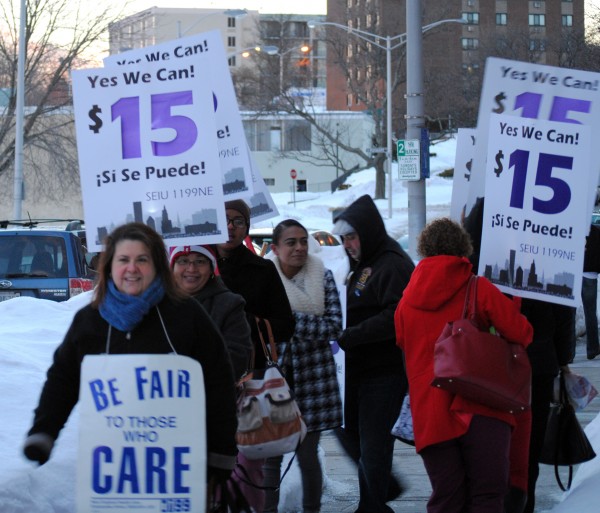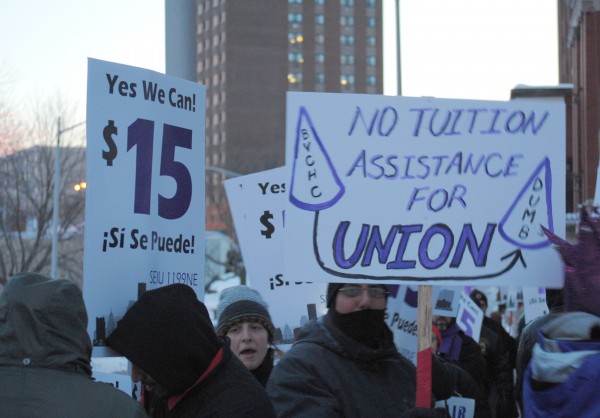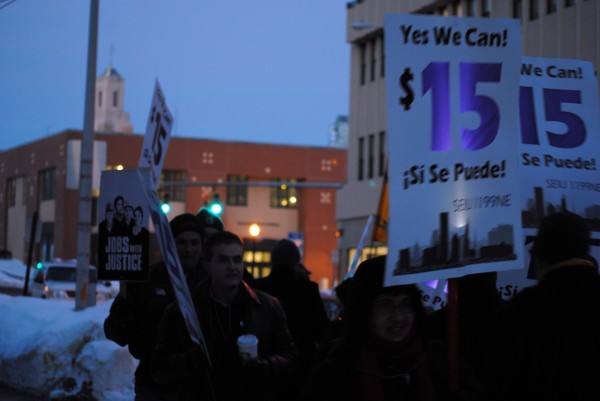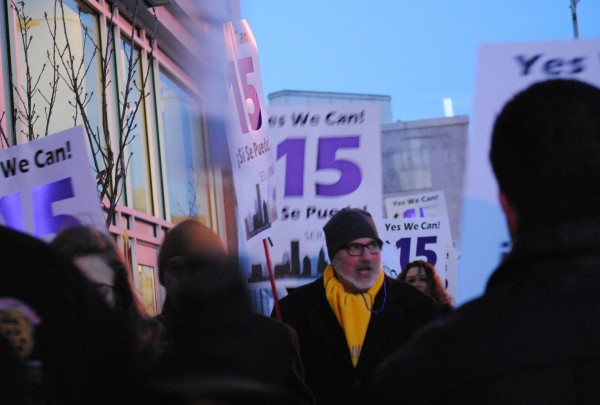Last week, Governor Gina Raimondo and SEIU District 1199 New England reached an agreement concerning family childcare providers that are part of the state’s Child Care Assistance Program. This agreement was made in part due to legislation from 2013, which established collective bargaining rights for family childcare providers. The SEIU unanimously approved the two-year agreement.

One of the largest parts of the agreement is a $250,000 investment by the state to establish a jointly administered training and professional development fund. This program will help to improve the quality of care and early learning delivered by care providers. Those who are part of CCAP will also receive their first reimbursement rate increase since 2008.
“We have taken a big step forward in making it easier for working parents to find quality child care options in their communities that meet their work schedules,” SEIU District 1199NE Executive Vice President Patrick Quinn said. “All workers deserve a living wage and this historic agreement shows that Rhode Island is ready to recognize and live up to the value of the important work of our early educators.”
RI KIDS COUNT data shows that more than 70 percent of Rhode Island children under the age of six have parents who work, and are in child care at least part time. The Department of Human Services also reported that CCAP served approximately 5,800 families and 9,400 families in July 2015.
“Investing in our kids, and the systems that care of them, is essential to ensure everyone has an opportunity to make it in Rhode Island,” Governor Raimondo said. “Providing quality, affordable child care removes a critical barrier to getting and keeping a job for many of our hardworking families, improves the development of our kids and prepares them for success in the classroom. I am pleased that we have reach an agreement with SEIU to enhance our commitment to high quality child care and support working families.”

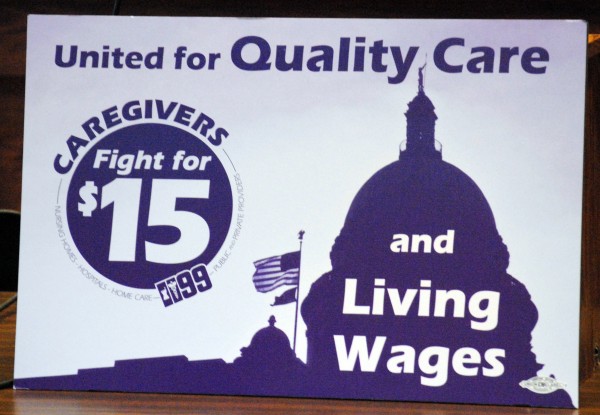 SEIU 1199, representing about 4,000 health care workers in RI, held a press conference to announce a series of initiatives “to improve the way the state invests in Medicaid-funded programs in long-term care and create a pathway to living wages for caregivers.”
SEIU 1199, representing about 4,000 health care workers in RI, held a press conference to announce a series of initiatives “to improve the way the state invests in Medicaid-funded programs in long-term care and create a pathway to living wages for caregivers.”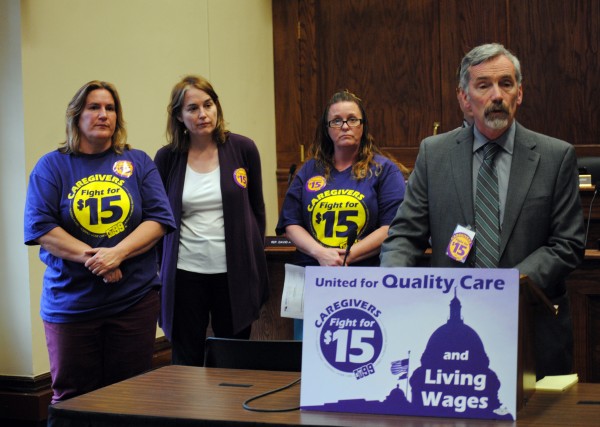 Speaking in support of the SEIU’s effort was Jenn Steinfeld of the Women’s Fund of Rhode Island, who sees this as both a social justice and gender equity issue.
Speaking in support of the SEIU’s effort was Jenn Steinfeld of the Women’s Fund of Rhode Island, who sees this as both a social justice and gender equity issue.

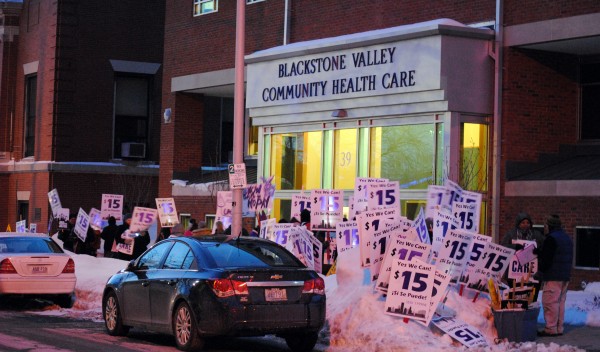 As the sun was setting and temperatures dropped, over seventy workers and supporters took to the sidewalks with illuminated “Yes We Can! $15” signs chanting in both English and Spanish outside
As the sun was setting and temperatures dropped, over seventy workers and supporters took to the sidewalks with illuminated “Yes We Can! $15” signs chanting in both English and Spanish outside  BVCHC has been expanding recently, capitalizing on the increase in business the health care provider has received under Obamacare. The number of patients served by the company has increased to over 15,000.
BVCHC has been expanding recently, capitalizing on the increase in business the health care provider has received under Obamacare. The number of patients served by the company has increased to over 15,000.